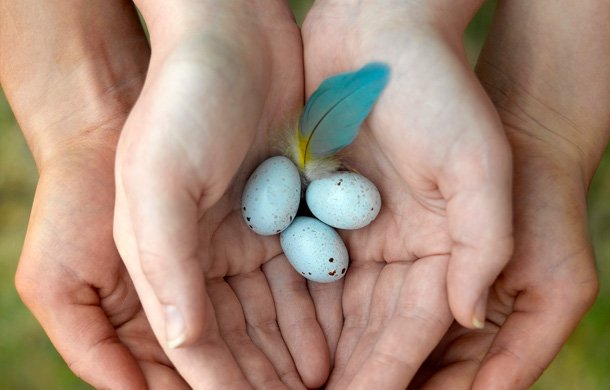Is cancer taking a toll on your fertility?
March 11, 2019 | Monday | Features | By Dr Mahesh Koregol
Cancer therapies, including chemotherapy, radiation and surgery, can lead to premature menopause or ovary damage in women, and can compromise sperm production in men as well.
image credit- nychi-acupuncture.com
A woman is born with the blessing of becoming a mother. At birth, she has her entire reserve of eggs, about four million. As she ages, her eggs decrease in both number and quality, making pregnancy increasingly difficult.
Fertility begins declining in the late twenties. At thirty, a woman has about 100,000 eggs but as she approaches her early forties, the number of eggs decreases significantly, and her chances of becoming pregnant naturally are about 5%. By forty-five, what eggs remain are subject to greater risk of chromosomal abnormalities. Age is the most important factor affecting a woman's fertility. This is true both for achieving pregnancy naturally and with the help of reproductive technologies such as in-vitro fertilization (IVF).
Freezing her eggs offers women the most effective way to preserve fertility. And while her age when she returns to use the frozen age does not affect the likelihood of a successful pregnancy, her age when she freezes her eggs is critically important.
Egg freezing is a method that allows a woman to store her unfertilized eggs so that she can conceive at a later stage, when natural conception would be unlikely. It is seen as a way of preserving the possibility of fertility for women who are not in a position to become pregnant straight away, or whose fertility is at risk for medical reasons such as cancer treatment.
Options for fertility preservation for cancer fighters
Advances in cancer treatment have made it possible for more people to win their battles against cancer, but both the cancer and the life-saving treatments can take a toll on a survivor’s fertility. Fertility preservation for cancer patients offers hope for cancer fighters who want to have a family.
Cancer therapies, including chemotherapy, radiation and surgery, can lead to premature menopause or ovary damage in women, and can compromise sperm production in men as well.
Frozen eggs may be stored for several years without any deterioration. When the woman is ready to use her eggs, they are warmed, and then fertilized with the sperm with the help of IVF. The aim is for the fertilized egg to develop into an embryo which can then be transferred to the woman’s uterus giving a chance of pregnancy.
A large number of men and women under the age of 40 are being diagnosed with various forms of cancer. This in turn is impacting their fertility in a big, often unnoticed, way. Infertility resulting from cancer treatment can lead to great psychological stress. There is now a growing population of young survivors who face quality-of-life issues, including the prospect of having a child post cancer treatment. This is when onco-fertility or fertility preservation comes to the rescue. Fertility preservation is an effort to help individuals retain their fertility or ability to conceive.Young women in their child bearing years can preserve their oocytes (women who do not have a partner) or freeze their embryos (married women) once they are diagnosed with cancer. Men can freeze a semen sample before cancer treatment.
Women turn to egg freezing for various reasons—
- Social Egg Freezing: One can certainly see a shift in societal norms with more women deciding to complete their education and start career before they think about getting married and/or starting their family. As women age, the quality and number of her eggs goes down along with an increase in chromosomal abnormalities, birth defects and the risk of miscarriage. Today, a lot of women are focused on their career and are willing to push their pregnancy only after they are completely settled in life.
- Eggs are in limited supply: As women age their ovarian reserve tend to deplete. A woman in her 20s is at the most favorable time of her pregnancy, when biologically she should be conceiving. Some women face early menopause (premature ovarian failure) that affect woman’s egg reserve and supply. In these women egg freezing helps ensure the possibility that one will be able to use one’s own eggs and have biological children later in life.
- Diminishing quality of egg: the likelihood of conception for a women declines each month as the likelihood of having eggs with chromosomal abnormalities increases. Egg freezing allows protecting the current health of eggs and increasing chances of conception through IVF in the future.
Dr Mahesh Koregol, Fertility Consultant, Nova IVI Fertility









